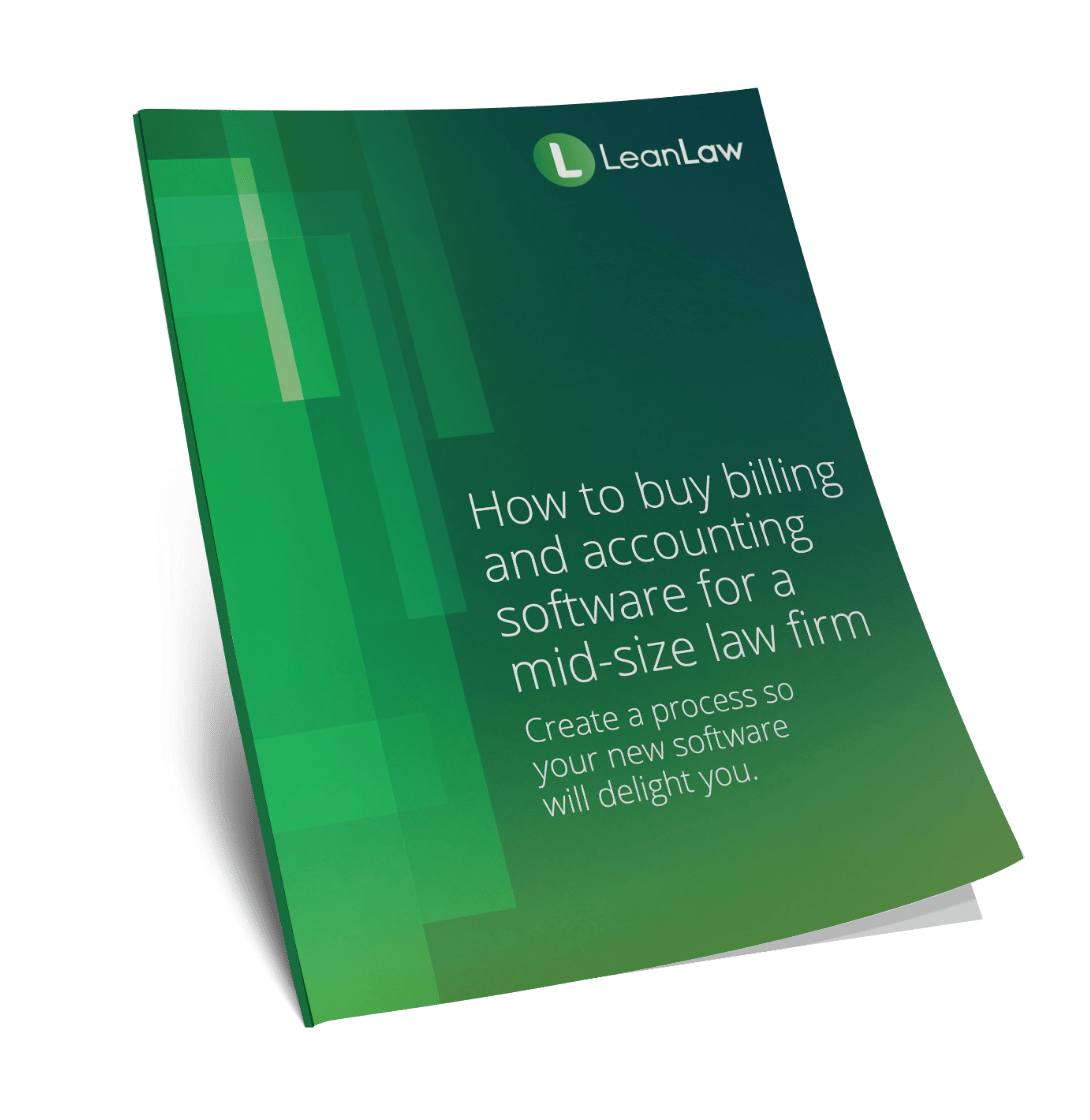
Have you ever found yourself tangled in the complexities of trust accounting?
Does your firm struggle to maintain accurate records, stay on top of deposits and withdrawals and ensure compliance with the stringent rules and regulations that govern client trust funds?
Trust accounting can be a daunting task, requiring meticulous attention to detail, time-consuming reconciliations, and a deep understanding of legal and ethical standards.
But what if there was a solution that could simplify your trust accounting processes and bring clarity and efficiency to all of your firm’s financial management?
Enter QuickBooks, the trusted software used by millions of businesses worldwide.

Key Takeaways
- Law firms must make sure they are being good stewards of client trust accounts and specialized types of billing and accounting software will help with this important task.
- Most law firms today prefer to create their own software tech stack instead of turning to the now antiquated (and overly complex) legal practice management software systems of the past.
- But knowing what types of billing and accounting software can be difficult unless you know what you’re looking for and why.
QuickBooks can be the key to mastering trust accounting, streamlining your workflows, and providing you with the confidence and peace of mind you need.
Get ready to unlock the power of QuickBooks and revolutionize your firm’s trust accounting practices.

What is QuickBooks Online?
QuickBooks Online is a cloud-based accounting software developed by Intuit, designed to help small and medium-sized businesses manage their financial operations effectively.
It is a powerful tool that offers a wide range of features and functionalities to streamline various accounting tasks, including bookkeeping, invoicing, expense tracking, payroll management, reconciling operating account bank statements and financial reporting.
And, as a cloud-based solution, QuickBooks Online allows users to access their financial data anytime, from anywhere, and from any device with an internet connection.

With QuickBooks Online, small businesses everywhere have learned that they can automate and simplify many aspects of their financial management processes.
In fact, according to a recent article in Business DIT, QuickBooks Online has approximately 80% of the market share and there are about 26.56 million businesses that are currently using it around the globe.
One of the key advantages of QuickBooks Online is its user-friendly interface and intuitive navigation, making it accessible to users who do not have a vast amount of accounting knowledge.
It also offers a wide range of customizable templates and reports, enabling businesses to generate financial statements, profit and loss reports, balance sheets, and more with ease.
Clearly, QuickBooks Online is a powerful tool for businesses everywhere. But with the unique accounting system needs that most law firms face, can this type of accounting software really work for the complex needs of a law firm?

Step-By-Step Process for Attorneys & Law Firmsto Buy Law Firm Software
Understand who needs what and prioritize features as you investigate new software. Download Buyers Guide eBookHow does QuickBooks Online integrate into a Law Firm’s Tech Stack?
Though QuickBooks Online was not designed specifically to be the type of accounting and billing software that law firms must implement, it works perfectly when another software platform is put into place.
LeanLaw is that platform.
Designed as an accounting and billing software specific for law firms, LeanLaw and QuickBooks Online can work perfectly together to round out all of a law firm’s financial needs and will play a vital role in streamlining the entire financial management processes.

QuickBooks Online and LeanLaw work together to create a robust and reliable legal accounting software system for law firms.

Here’s how their integration can enhance efficiency, accuracy, and transparency in legal accounting:
- Trust Accounting Compliance: Trust accounting is a critical aspect of legal accounting, and ensuring compliance is of utmost importance. QuickBooks Online integrates with LeanLaw’s specialized trust accounting features, allowing law firms to accurately manage client funds held in trust and in accordance with client trust account liabilities and legal regulations. This integration ensures that trust accounting transactions are recorded, tracked, and reported with precision, maintaining transparency and compliance.
- Seamless Data Synchronization: QuickBooks Online and LeanLaw can synchronize all of a firm’s trust account and operating account data, eliminating the need for tedious manual entry and reducing the risk of errors. Trust accounting transactions, time entries, expenses, and invoices can be seamlessly transferred between the two systems, ensuring that all financial data is accurately reflected in both software platforms.
- Efficient Time and Expense Tracking: LeanLaw’s time tracking and expense management capabilities integrate with QuickBooks Online, enabling law firms to capture billable hours and expenses with ease. This integration eliminates the need for duplicate data entry and ensures that all relevant financial information is accurately recorded in both systems.
- Automated Invoicing and Billing: LeanLaw’s billing features can be integrated with QuickBooks Online, allowing law firms to generate invoices directly from the system. This integration ensures that all billable hours, expenses, and trust transactions are accurately reflected in the invoices, minimizing errors and streamlining the billing process. Law firms can also track payment status and send reminders for outstanding invoices through QuickBooks Online.
- Real-Time Financial Reporting: The integration between QuickBooks Online and LeanLaw provides law firms with real-time access to financial data and comprehensive reporting capabilities. Law firms can generate financial reports, including profit and loss statements, balance sheets, trust fund reports, and client-specific reports. These reports offer insights into the firm’s financial health, helping make informed business decisions.
- Enhanced Efficiency and Productivity: By integrating QuickBooks Online and LeanLaw, law firms can eliminate manual data entry, reduce duplication of work, and streamline financial processes. This integration improves overall efficiency, allowing legal professionals to focus on their core activities and spend less time on administrative tasks.
- Scalability and Flexibility: QuickBooks Online and LeanLaw are cloud-based solutions, providing scalability and flexibility to law firms of all sizes. The integration allows for easy data sharing, collaboration, and access from anywhere, anytime, on any device with an internet connection.
LeanLaw and QuickBooks Online for Trust Accounting: Perfect for Compliance, Trust and Accountability
In any successful law firm, trust accounting will be an important part of making sure that your client funds are safe, that your trust accounts are being handled appropriately and within the statutes that govern your jurisdiction and that your client’s trust balance is always accurate.
But even though trust accounting is a significant priority to a firm, it can also be a huge headache, particularly if your practice doesn’t have the right trust accounting software to help you manage it.
This is another area where LeanLaw and QuickBooks Online work exceptionally well together.
Let’s look at how.
Seamless Data Integration: LeanLaw and QuickBooks Online seamlessly integrate to provide a unified system for trust liability account management. This integration ensures that all financial data, including trust account transactions, expenses, and invoices, is synchronized between the two platforms, eliminating the need for manual data entry and reducing the risk of errors.
Trust Accounting Compliance: Both LeanLaw and QuickBooks Online have specialized features designed to meet the unique compliance requirements of that trust accounts demand. LeanLaw offers comprehensive trust accounting functionality, while QuickBooks Online provides robust financial management capabilities. Together, they create a powerful combination that ensures compliance with trust accounting rules and regulations.

Accurate Trust Fund Management: With LeanLaw and QuickBooks Online, law firms can effectively manage client trust funds. Trust transactions, including deposits, withdrawals, and transfers, can be accurately recorded and tracked in both systems. This integration enables law firms to maintain accurate trust account balances, ensuring that client funds are managed with utmost care and accountability.
Streamlined Billing and Invoicing: The integration between LeanLaw and QuickBooks Online simplifies the billing and invoicing process for law firms. Time entries, operational expenses, and trust account transactions recorded in LeanLaw can be easily transferred to QuickBooks Online for invoicing. Not only does this streamline the billing workflow, it also ensures that clients receive accurate and timely invoices based on their trust account activity.
Real-time Financial Reporting: LeanLaw and QuickBooks Online provide robust reporting capabilities that enable law firms to gain valuable insights into their financial performance. Whether it’s a firm’s trust accounts or operating bank account, these platforms offer a wide range of financial reports for all, including trust fund reports, chart of accounts reports, profit and loss statements, and balance sheets. By integrating the two systems, law firms can generate real-time financial reports that reflect the complete picture of their trust accounts, operating bank accounts and overall financial health.
Enhanced Efficiency and Time Savings: The integration of LeanLaw and QuickBooks Online automates many of the financial processes that used to have to be done manually, saving law firms valuable time and increasing overall efficiency. With synchronized data, streamlined billing workflows, and automated financial reporting, legal professionals can focus more on their core responsibilities and spend less time on administrative tasks.

Scalability and Flexibility: Both LeanLaw and QuickBooks Online are cloud-based solutions, providing law firms with scalability and flexibility. This integration allows for easy access to trust accounting and financial data from anywhere, at any time, and on any device with an internet connection. It ensures that law firms can adapt and grow their firms without limitations, meeting the evolving needs of their trust accounting processes.
Deciding to do all of your trust accounting in QuickBooks and LeanLaw means that a firm now has a powerful solution for trust accounting compliance, trust fund management, and overall financial management.
By leveraging the integrated features and capabilities of these two platforms, law firms can ensure transparency, accountability, and accuracy when it comes to all of their bank accounts and liability accounts.
This will ultimately lead to your end goal…fostering trust and confidence among clients as well as ensuring that all your compliance needs are met.
Schedule a demo
Want to See LeanLaw and QuickBooks Online in Action?
If you think that LeanLaw and QuickBooks Online might be the right solution for your law firm, reach out to us today.
Not only do we have a free demo that will show you how easily LeanLaw and QuickBooks Online integrate together, but we also have a highly skilled team of software and onboarding specialists who can answer any remaining questions you have and make sure you feel confident in your decision.
If you are tired of struggling with your billing and accounting software, come see how LeanLaw can make running a profitable law firm straightforward and simple for everyone involved.




